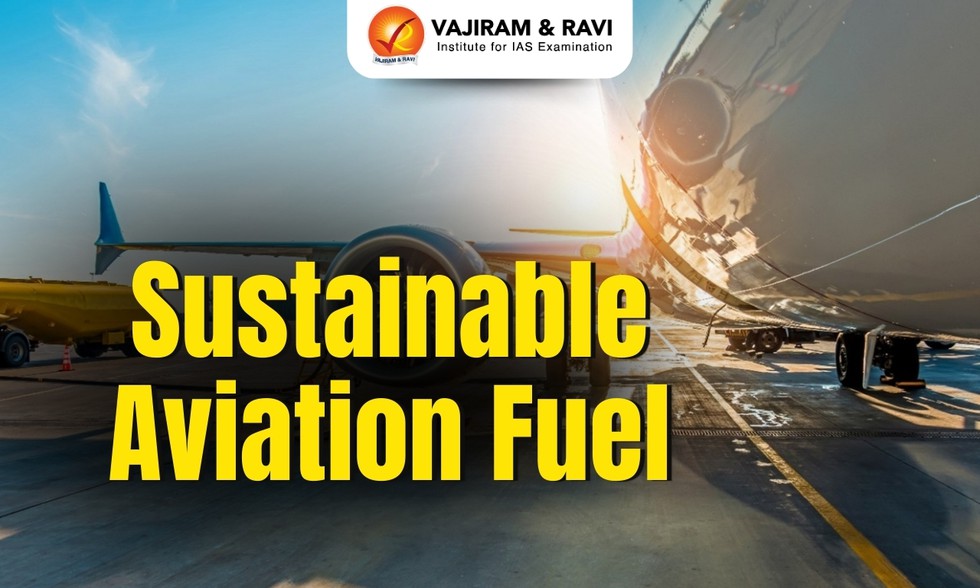About Sustainable Aviation Fuel:
- It is a biofuel, also known as bio-jet fuel produced from sustainable feedstocks.
- It has chemistry similar to conventional aviation turbine fuel (ATF) or jet fuel, which is derived from crude oil.
- This means that existing aircraft engines can easily use the SAF-ATF blend.
- It is made from renewable biomass and waste resources have the potential to deliver the performance of petroleum-based jet fuel.
- Various Indian airlines have already operated successfully a few test and demonstration flights using jet fuel doped with SAF in various proportions.
- Production: It can be produced from a number of sources (feedstock) including waste oil and fats, green and municipal waste and non-food crops.
- It can also be produced synthetically via a process that captures carbon directly from the air.
- Significance of Sustainable Aviation Fuel
- Its carbon footprint is significantly lower than aviation turbine fuel (ATF).
- It is ‘sustainable’ because the raw feedstock does not compete with food crops or water supplies, or is responsible for forest degradation.
- It remains the major mature and viable pathway to decarbonise the aviation sector. At the same time, SAF only accounts for 0.3% of the current fuel use for aviation.
